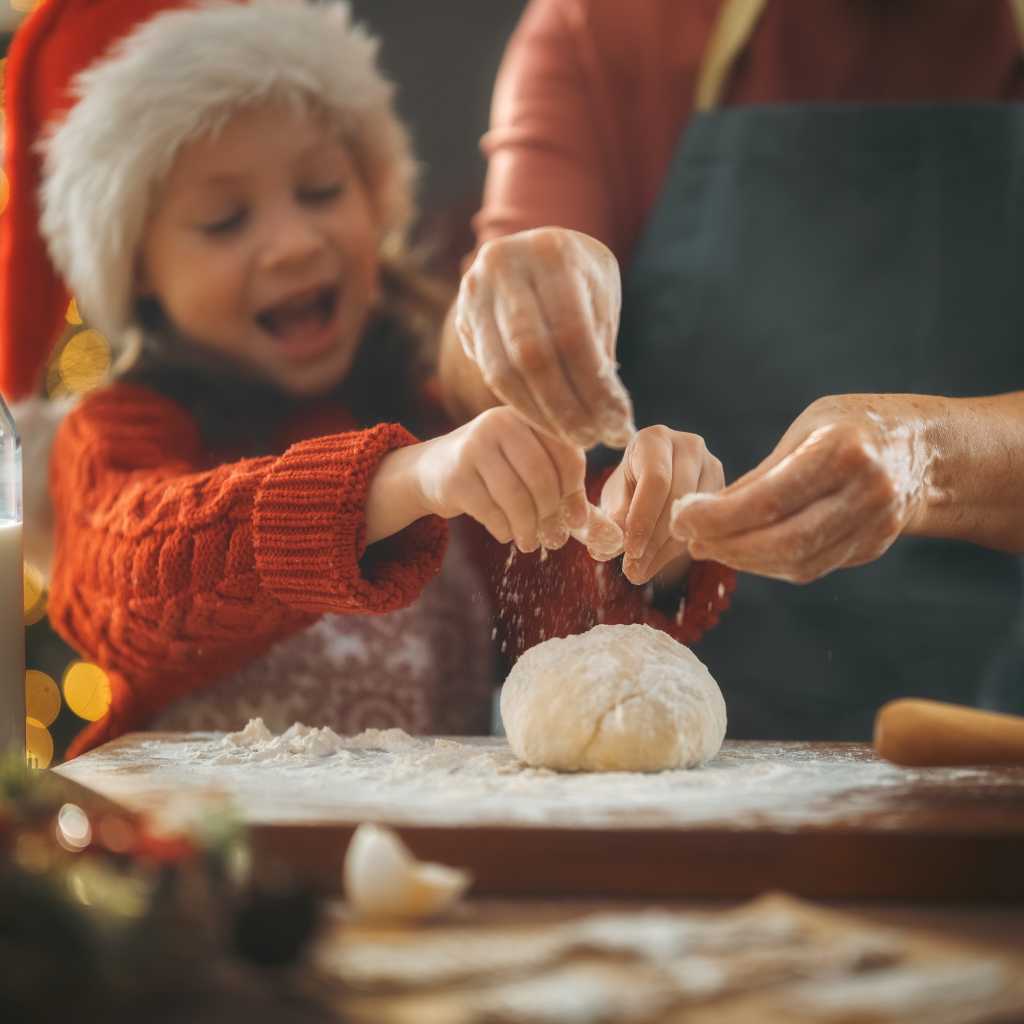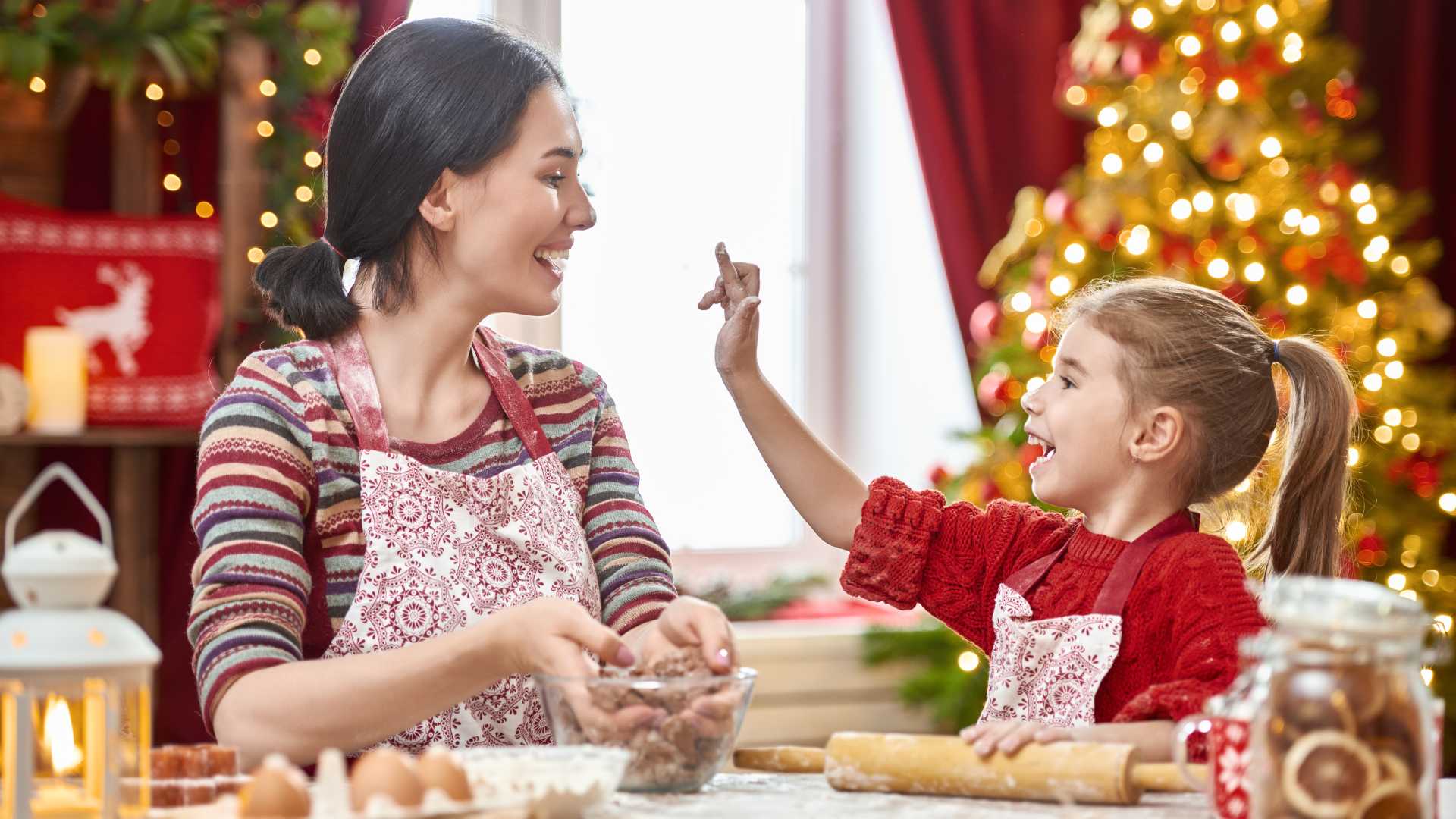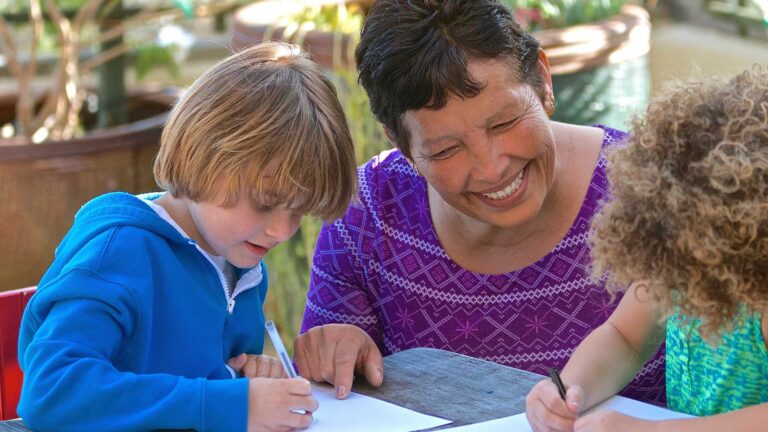Tabla de contenidos
How do you handle holiday meal prep with kids with autism?
Christmas is a time of traditions, family gatherings, and, of course, delicious meals. But for families with children with autism, these holidays can come with unique challenges. Sensory sensitivities, rejection of certain foods, or communication difficulties during holiday meal prep with kids with autism are some of the challenges that neurodiverse families in Plano, Katy, and Austin may face, leading many families to wonder: how to handle holiday meal prep with kids with autism?
En este blog de Texas ABA Centers blog, we offer you practical strategies and tips to make holiday meals more inclusive, fun, and meaningful, not only for your children but for the entire family. Keep reading to discover how to turn challenges into opportunities for connection and learning.
Holiday and Mealtime Challenges for Children with Autism
Mealtime can be challenging for children with autism, and the holidays amplify these complexities due to:
- Sensory Sensitivities: The noise of a house filled with people talking at the same time, the intense smells of foods, and the changes in textures can be overwhelming for many children with autism.
- Picky Eating: Many children with autism have specific food preferences, rejecting foods that are new or look different to them. Fussy eating can complicate meal preparation with children with autism as their food choices can be very narrow.

- Routine Changes: Holidays often involve different schedules and eating away from home, which can create anxiety in a child who feels more secure with established routines.
- Communication Difficulties: Expressing what bothers them or asking for help can be complicated for a child with autism. The discomfort of changes in routine during the holidays, overwhelming stimuli, and interaction with new people can be challenging for a child with autism to express, leading to meltdowns.
Recognizing these challenges is the first step in approaching them with empathy and finding solutions that work for your family.
Preparing Your Child for Inclusive Holiday Cooking
Anticipation and preparation are crucial to holiday meal prep with kids with autism. Here are some tips to encourage inclusive holiday cooking:
- Involve them in the planning: Talk with your child about the meals that will be available. Use visual aids such as pictures of typical holiday dishes to help them become familiar with them. If your child has a favorite food, include it on the menu so they have something safe to enjoy.
- Create a visual schedule: Holidays are often unpredictable. A visual calendar or schedule with times for meals, visits, and activities can help your child know what to expect.
- Practice before the big day: If you know your family will be eating out, organize a “practice meal” at home with dishes similar to what they’ll encounter. This strategy will reduce anxiety by exposing them to new textures and flavors in a safe environment.
- Identify a quiet space: If your family will be away from home, find a quiet place where your child can retreat if they feel overwhelmed. Having a safe space available can make a big difference.
- Involve Your Child in the Kitchen: If you are staying home, holiday cooking with children with autism can be a new family tradition. Cooking with children with autism is an activity that can bring many benefits and learning for your child.
Exploring the Benefits of Holiday Meal Prep with Kids with Autism

The study of Western Michigan University highlights several benefits of cooking for children with developmental disabilities (DD), including autism spectrum disorder, particularly in a group setting. Here are the key points:
- Psychosocial Benefits
- Improved Mood and Sense of Belonging: Cooking activities foster a sense of inclusion and social connection, helping children feel part of a group.
- Enhanced Social Skills: Participation in group cooking encourages interaction with peers, which can improve communication and teamwork.
- Boosted Self-Esteem: Completing cooking tasks increases confidence and a sense of accomplishment.
- Cognitive and Developmental Gains
- Problem-Solving Skills: Cooking involves steps like measuring, mixing, and following recipes, which help develop logical thinking and sequencing abilities.
- Focus and Attention: Structured cooking activities require concentration, improving attention spans in children with DD.
- Motor Skill Development
- Fine Motor Skills: Tasks like chopping, stirring, and decorating improve dexterity and hand-eye coordination.
- Gross Motor Skills: Activities such as kneading dough or reaching for ingredients engage larger muscle groups.
- Sensory Integration
- Exploration of Textures and Smells: Cooking introduces children to a variety of sensory inputs in a controlled, engaging way, helping them become more comfortable with different textures and smells.
- Tolerance to New Stimuli: Regular exposure in a fun environment can reduce sensitivity to unfamiliar sensory experiences.
- Practical Life Skills
- Independence: Cooking teaches essential life skills like food preparation and safety, fostering greater autonomy.
- Healthier Eating Habits: Exposure to fresh ingredients and healthy recipes can encourage better food choices and reduce picky eating.
- Behavioral Benefits
- Routine and Structure: Cooking classes provide predictability and clear expectations, which are particularly beneficial for children with autism or other DDs.
- Refuerzo Positivo: The act of creating something tangible like a meal rewards effort and encourages repetition of positive behaviors.
Holiday cooking with children with autism not only offers a platform for skill development but also creates an enjoyable and inclusive environment for children with developmental disabilities to thrive socially, emotionally, and physically.
Making Mealtime Fun for Children with Autism
The kitchen can be a place of learning and fun. Inviting your child to participate in preparing holiday meals not only encourages inclusion but also helps them become familiar with food in a positive way.
Strategies to get them involved:
- Assign simple tasks: Children can mix ingredients, cut cookies with molds, or decorate plates. These tasks are not only fun but also work on fine motor skills.
- Create a sensory station: Use ingredients such as flour, dough, or sugar to let them explore textures as they cook.

- Tell stories about the food: Relate holiday dishes to stories or family traditions. Storytelling makes the food more exciting and appealing.
- Reward their participation: Celebrate their accomplishments in the kitchen, no matter how small. This positive reinforcement can encourage them to try what they helped prepare.
- Explore Resources Online: There are several guides for parents to encourage inclusive holiday cooking, with step-by-step recipes, valuable tips, and a sensory experience journal.
How ABA Therapy Can Support Holiday Meal Prep with Kids with Autism
El Análisis del Comportamiento Aplicado (ABA) therapy is a powerful tool for working on critical skills that can facilitate the preparation and enjoyment of holiday meals.
Benefits of ABA in this context:
- Sensory desensitization: ABA can help children tolerate textures, smells, and tastes that they usually avoid.
- Fostering communication: Therapists can teach children to express their needs and preferences using words, gestures, or augmentative communication systems.
- Developing social skills: Sharing a meal is a social act. ABA can work on skills such as taking turns or asking for help appropriately.
If your child is already receiving ABA therapy, consult with the therapist about specific goals that could focus on skills related to mealtime during the holidays.
Texas ABA Centers Offers Autism Support During the Holidays and All Seasons!
Preparing holiday meals with children with autism doesn’t have to be a source of stress. With a bit of planning, creativity, and support, these experiences become valuable moments of connection and learning for the entire family.
En Texas ABA Centers, we support families in navigating neurodiversity through our autism services. With our ABA therapy, whether in a clinical setting, at home, or school, children receive professional support to strengthen skills that allow them to gain independence and engage with their environment in a healthy way. Not just for the holidays, all year-round children can benefit from ABA therapy for different stages of life. Call us at (877) 771-5725 o contáctanos online!









